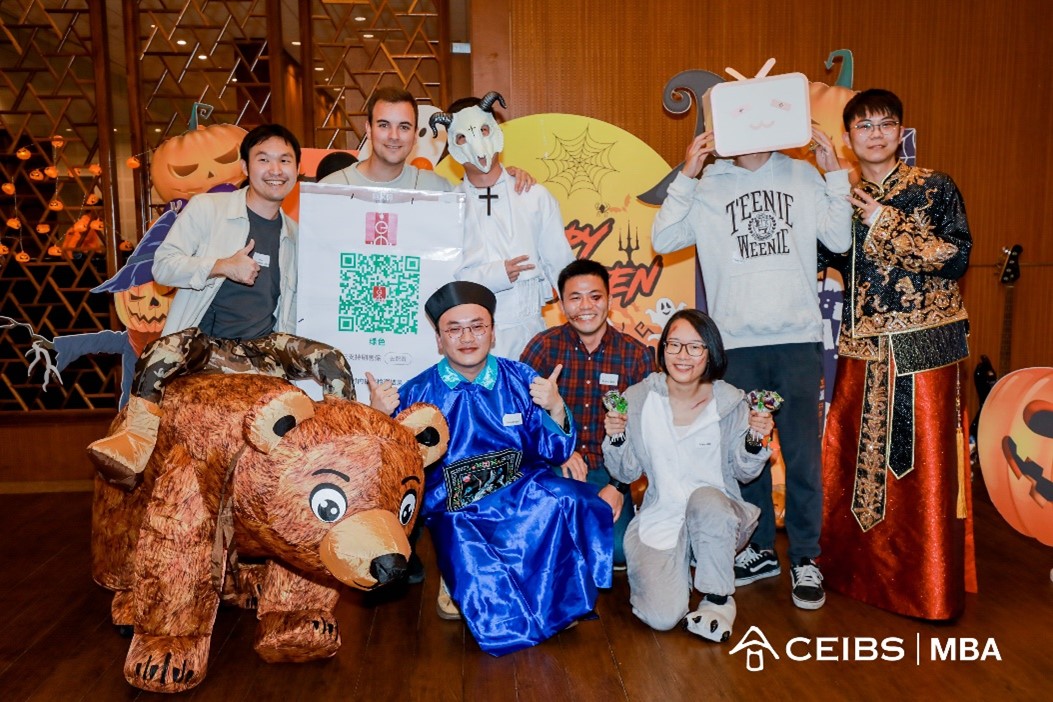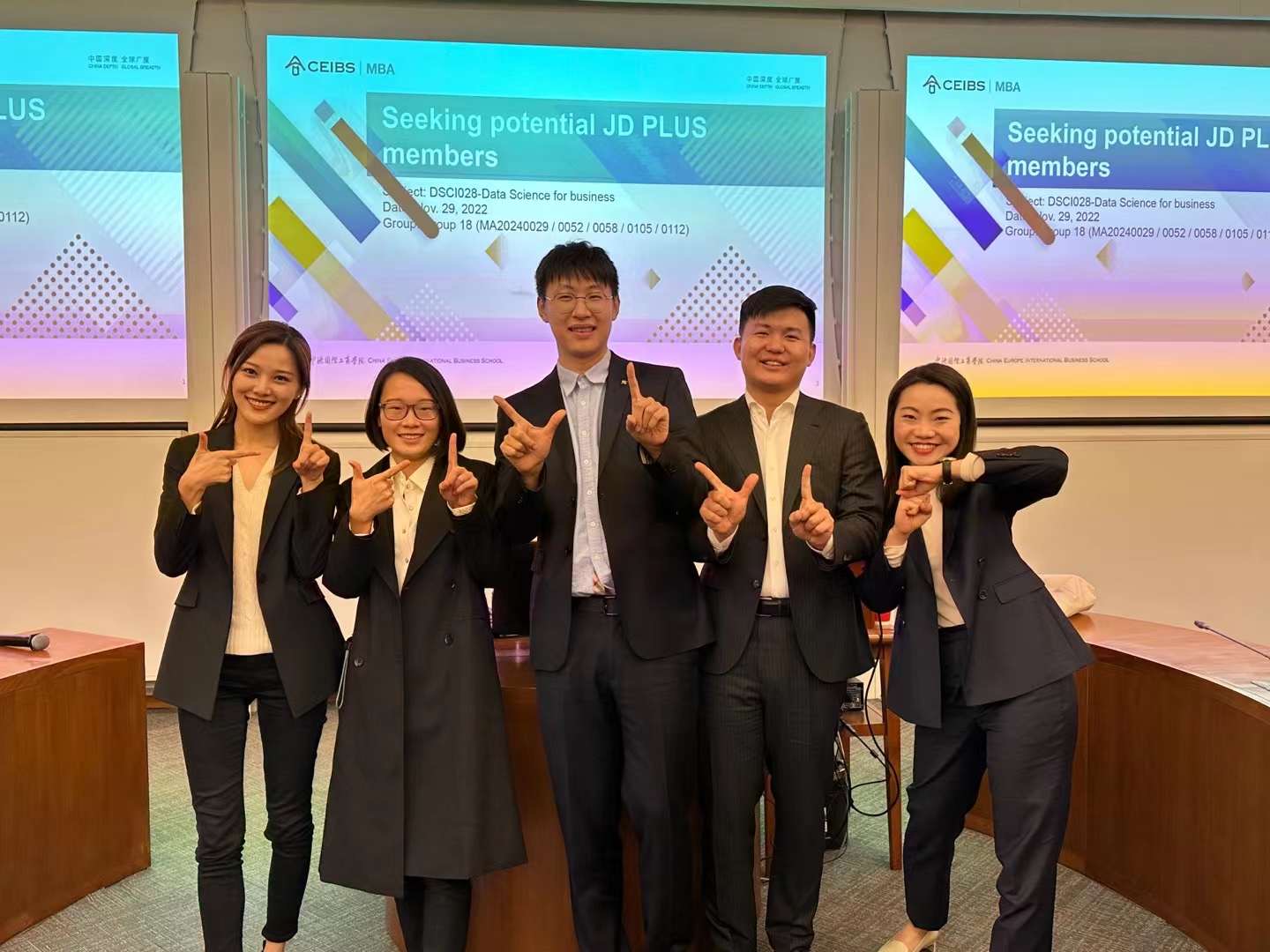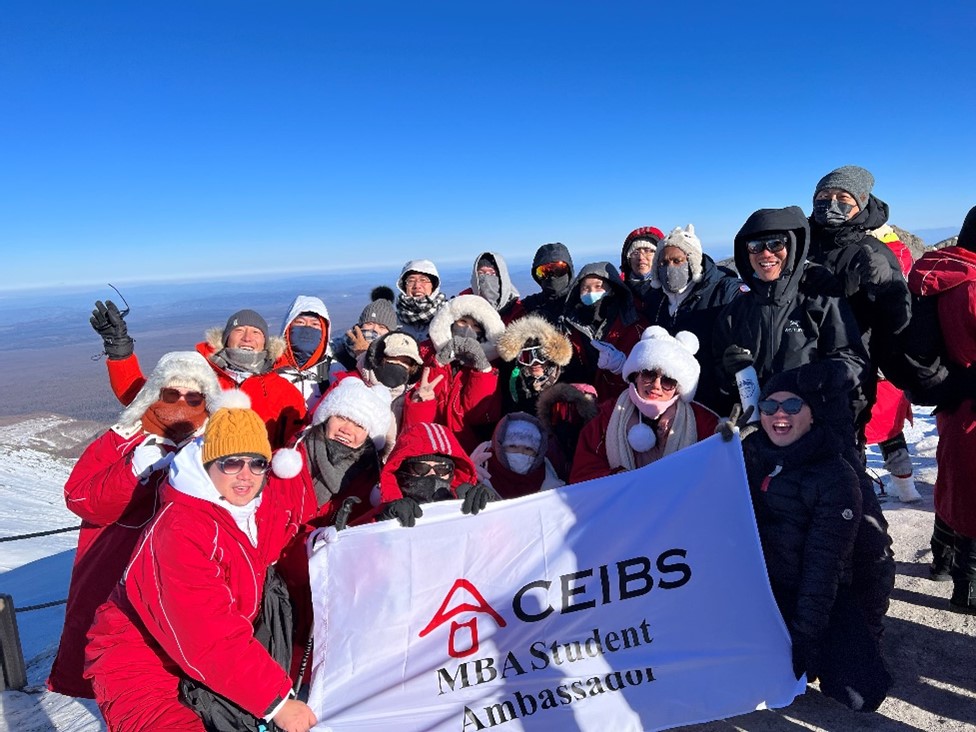Some reflections on my MBA journey so far

A warm opening for the MBA journey...
Almost halfway through our MBA journey, many thoughts arise when reflecting on personal experiences and learnings I’ve had. In this article, I would like to take the chance to share some of those stories and offer some advice on how to make the MBA journey easier and more rewarding. I hope these suggestions are not only useful to you, but also to my future me when dealing with difficult situations that will come at the end of this journey and beyond.
Plan ahead to avoid crisis
When I started to consider doing an MBA, I had spent half my life in🔸快乐10分玩法说明 and the other half in Spain. I was in my second year of consulting, trying to envision my future in my professional career and in my personal life.
It was quite clear to me that returning to🔸快乐10分玩法说明 would be beneficial for me and that the MBA at CEIBS would be the best platform to do help do it. On the one hand, I needed to improve my knowledge, not only in traditional fields such as finance and strategy, but also in terms of understanding the Chinese market. The diversity of student profiles and the “China depth” approach of CEIBS perfectly suited my needs. On the other hand, CEIBS was the most suitable platform for me to leverage its network and resources for my future career; without it, it would be difficult to find an internship or a full-time job in🔸快乐10分玩法说明 coming from outside.

...began with meeting a group of handsome fellows...
Once I decided to apply for the CEIBS 2023 batch (I will explain later why I’m now studying in 2024 batch!), I started my GMAT preparation in October 2019, one year before the application deadline because I thought it would be better for me in case I needed to retake the test. Reality proved me absolutely right. My initial test date was April 2020, when COVID broke out and Spain announced a two-month lockdown. I was forced to postpone the GMAT to May 2020 and switch to the online format. Then, an unexpected technical issue occurred on my test day, and I had to postpone again. The score of my first GMAT was awful (a 570!). I concluded that while I thought I was studying, I was just pretending to study. So, I started again with the GMAT but this time with some logic and feeling behind it. On my second attempt in July 2020, I came out with a much better score (a 700!). In September 2020, I tried again (just for fun and maybe a little bit of self-esteem, but that is another story) and got a slightly better score and peace of mind.
In conclusion, my advice is to always plan in advance, and leave some room for yourself to be less stressed. This way, not even a global crisis like the one caused by COVID will be able to ruin your plans.

...and a team that supported each other in every way.
Be prepared to avoid overwork
After I got a good GMAT score, the rest of the application documents were relatively easy to prepare. The process went smoothly and I got an interview invitation. I started browsing online forums to collect possible interview questions and tried mock interviews with myself. I partially failed, however, and I was put on the waiting list for 2023 batch. When I heard the news, I was 100% frustrated with myself and even a little bit angry with CEIBS. After a cooling off period, I tried to work out the problem.
From January to June 2020, I tried to get off the waiting list. I wrote to former student ambassadors for suggestions and to MBA Admissions to express my strong feeling about CEIBS. Nevertheless, in the end, I was told that I had failed the interview process, and that I should have been clearer with my answers to the questions of “Why CEIBS?” “What can you bring to CEIBS?” and “What can CEIBS offer you?” The MBA office then encouraged me to apply for the Class of 2024.

As friends, we have fun together...
Having failed the interview the first time, I took it more seriously the second time. I looked deeper into my motivations and did several mock interviews with a former manager who used to be an interviewer for IESE. I even practiced with my father-in-law! I guess my second performance was better, because now I am studying at CEIBS.
Looking back on what I did, I came up with the “10-fold rule.” I would say that I was not very good as an engineer, and that my six years of engineering studies were outweighed by my four years of consulting. However, one of the few concepts I still have in my mind is the 10-fold rule in maintenance (not sure if that rule is widely recognized, I only remember that my professor at the time shared it with us – so don’t Google it). The cost of corrective maintenance is 10 times the cost of preventive maintenance, which in turn is 10 times the cost of predictive maintenance, making predictive maintenance the cheapest action to take, and corrective maintenance the costliest one.
In summary, I would say that holistic preparation in advance (not only for interviews but also for day-to-day work and networking) is always the most cost-effective and wise option. The better you prepare yourself, the better you improvise.

...we try to create unforgettable moments...
Share and listen to create better relationships
I consider myself a generous person, willing to help people and strangers around me. However, and contradictorily, I’ve always wondered if my actions will bother others, so I am often quite reluctant to ask for help. CEIBS changed my mind in this regard. We have a lot of clubs that organize talks and peer sharing, we are divided into small groups to work together and to support each other (in studying, presentation, excel skills, personal growth and other fields) and the professors and all staff are willing to chat and contribute to our MBA journey.
After the first few months of our MBA journey, I see that all the students have, at least, one thing in common: we all are happy and willing to share. Not only that, I have realized that when asking for help or sharing past experiences, people always appreciate it when you look for them, rely on their knowledge, and are willing to listen to them. This peer sharing is in a way a tool for networking, a tool to build better relationships. During this months I have seen colleagues master the art of listening, and they are people that inspire me and that I want to learn from.
In short, don’t be afraid to ask for help – people are usually very generous. However, people are not always available when you need them. So, again, plan in advance to allow them to be flexible, and have time for yourself to be better prepared and to avoid expensive corrective actions.

...and together we help each other become a better people.














